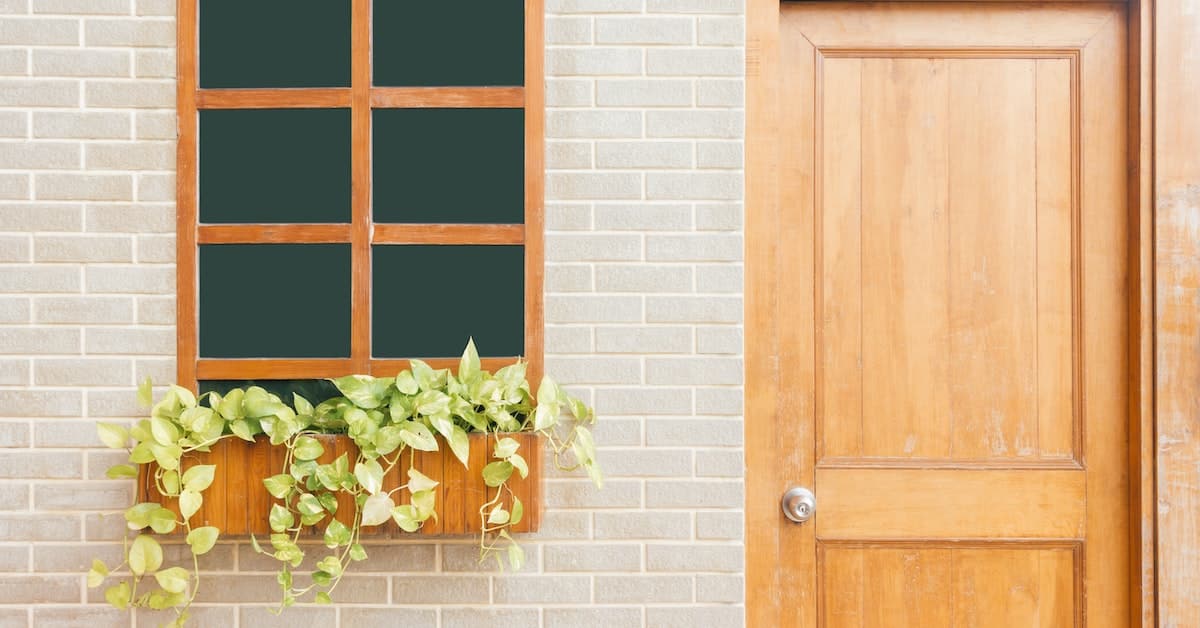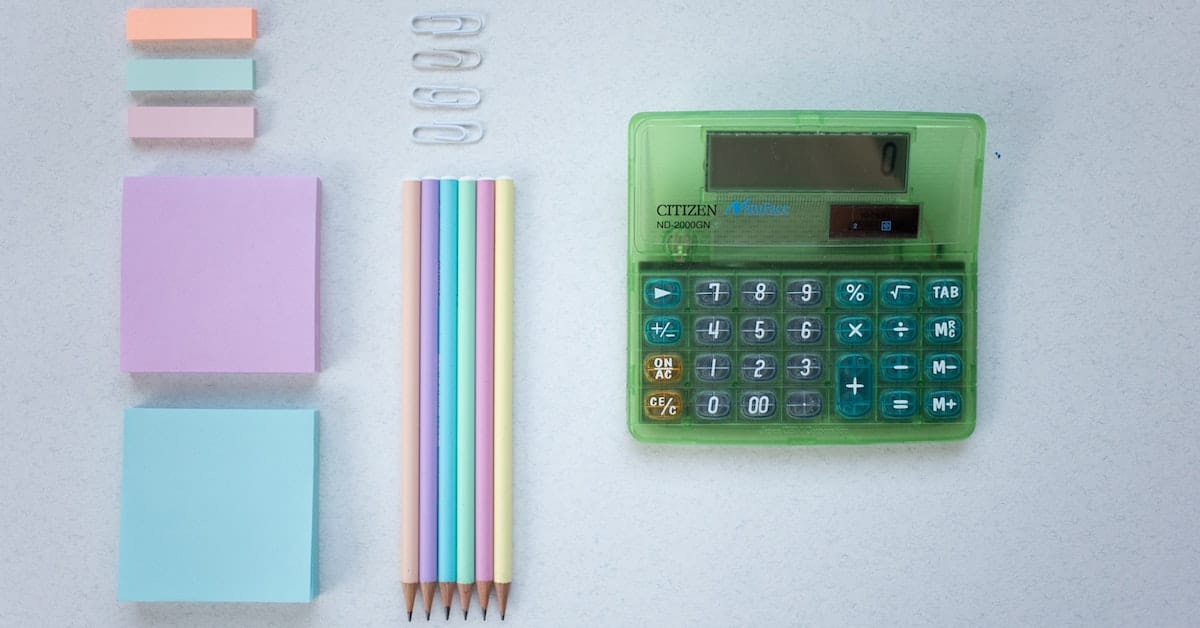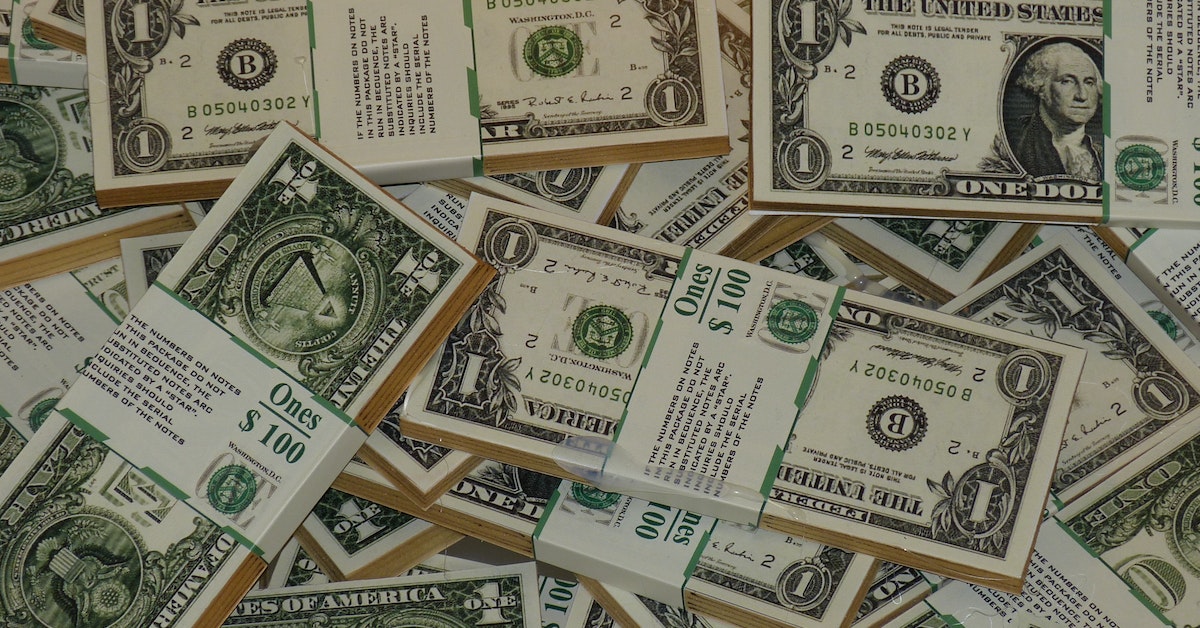It probably doesn't come as a surprise to you that most people plan to turn a profit when they become a landlord. How much profit should you make on a rental property, though?
The reality is that the answer to this question depends on a number of different factors. The location of the property, the type of property and its condition, your personal financial goals and more should all be considered when figuring out which property will give you the best cash flow.
Let's take a look at some of the methods you can use to estimate the profitability of rental properties, what you should look for when hunting for your first rental, and much more.
When you own a rental property, one of the primary goals is to have cash left over at the end of each month after all of your expenses. Your rental property profit is the money you take in from the property minus the money you spend on the property each month.

An important note: Rental property profit and taxable net income aren’t synonymous terms. There are a number of non-cash deductions you can use as a part of your tax strategy to help reduce your taxable net income.
The first thing you likely think of when it comes to profiting from a rental property is the monthly rent you can collect as a landlord. However, this is only one of the ways that real estate investors make money (and save money) using their properties.

Here are some of the primary ways that real estate investors can make money from rental properties:
Real estate is also understood to be a good hedge against inflation. Considering the fact that inflation is a hot topic these days, it’s no surprise that investors have been pouring their money into the housing market in recent years.
Most rental property owners make a profit thanks to their property’s cash flow generation. Your cash flow is your total income minus your total expenses.

There are a number of factors that determine your cash flow, including:
Understanding how much you should expect to pay each month or each year for these costs is essential to making a good investment. Sure, some people get lucky with their purchase not having done much research or planning. You don't want to be gambling, though, and it's important to run the numbers in every possible scenario to ensure that you will come out on top no matter what happens.
In the next section, we'll look at some of the different metrics you can use to measure profits from your rental property.
When it comes to measuring rental property profits, there are four primary methods. It’s a good idea to keep an eye on each of these metrics. This can help make sure that you meet your long-term financial goals and that your rental’s financial performance is on the right track.
The capitalization rate (also known as “cap rate”) is a ratio that relates the annual NOI (net operating income) to the purchase price of a property. Because different investors use varying amounts of leverage to purchase properties, NOI doesn’t incorporate the mortgage payment.
The basic concept here is that a higher cap rate means that more income can be generated relative to how much you bought the property for. Generally, the higher the cap rate, the more profits you can expect to earn.
It’s important that you only use the cap rate as a comparative tool between properties in the same specific market. This is because cap rates can vary quite a bit between markets.
The amount of money left over in your pocket after each month is your cash flow. After you’ve paid your mortgage, your taxes, your insurance, and all of your other operating expenses, your cash flow is the profit that remains.

You shouldn’t expect that your cash flow will be a steady number from month to month. You will likely find that you spend less than you expected on expenses one month while more than you expected during another. On top of that, it isn’t always easy to anticipate how long a property will be vacant you’re searching for a tenant.
ROI stands for return on investment and is a key metric in understanding the profitability of real estate investing. It compares how much money you got out of an investment in relation to how much cash you invested in the rental. The formula is as follows:
Cash on cash return is a metric that helps you understand the comparison between how much money you invested in a property and the annual cash returned from the property.
To calculate this ratio, you will include the mortgage payment debt service (unlike calculating your cap rate.)
There really isn’t one set answer to the question of how much profit you should be making from your rentals. Every investor has their own goals, and a great profit for one rental property owner might be abysmal for another.
When you’re building your strategy for real estate investment, you’ll want to think about what reasonable goals are in terms of profit and whether rental property ownership is the best way for you to get there. Take a look at the next section called “Factors to Help You Determine Your Ideal Rental Property Profit” to learn more.
For now, though, let’s look at some of the metrics real estate investors use to determine whether a property will generate enough income to make it worth the purchase.
One strategy that real estate investors sometimes use to determine whether a property is worth taking a closer look at is the 1% rule. Basically, the idea here is that the amount of money you collect in rent each month should be equal to or greater than 1% of the total investment cost.
The expectation is that if your monthly rent is at least 1% of the total investment, you should be able to cover your expenses every month and generate a positive cash flow.
You should never buy a property based only on the fact that it seems to fit the 1% rule, but this metric can help you create a shortlist of promising properties. Once you have your shortlist, you’ll want to do a lot more research about each one to help you determine which property will best help you meet your goals.
Similar to the 1% rule, the 2% rule sets the bar a little higher. The idea is that the monthly rent you collect should be at least 2% of the property’s purchase price.
Whether or not either the 1% rule or the 2% rule is a useful metric depends on a lot of factors including your local market. There are a lot of investors out there that still find the 1% rule helpful, while others feel that the shortcomings of this metric override it's usefulness.
One of the reasons that not everyone loves the 1% and 2% rules is that they can rule out perfectly good investments. At the same time, just because a property is given a green light thanks to this simple math formula doesn’t mean that you should make an offer.
Both the 1% rule and the 2% rule are best used to prescreen rental properties rather than as a way to make a final decision. These both also work best if you’re considering smaller single-family homes rather than multifamily units or properties in high-priced markets.
Gross rent multiplier is a formula that you can use to figure out how long it’s going to take you to pay off a property.
Property price / gross annual rental income = gross rent multiplier
By comparing the fair market value of a particular property to your projected annual rental income, you can get a sense of whether a rental could produce positive cash flow right off the bat.
The idea behind the 70% rule is that you should only pay 70% of the after-repair value of any given property minus the total cost of repairs. This rule is primarily used by house flippers and is most useful if you are planning on renovating a property that needs a lot of TLC.
You can use this rule to help figure out the max price you want to put toward a property so that you’re still able to turn a profit. That being said, you’ll want to be very considerate of the market you’re in when doing this calculator and you might need to adjust things to make it work for a high-end or low-end market.
For example, you might want to lower the percentage in a place where prices are low, or you might be able to get away with raising the percentage to 80% in high-value markets.
This rule states that you should assume that 50% of your gross income will be taken up by your operating costs. As an example, let’s say that you believe a property will generate $20,000 a year in income. In this instance, you will want to expect that $10,000 will go toward expenses every year.
It’s worth noting that the monthly mortgage payments aren’t included in the expenses in this calculation. Instead, you’ll want to factor in things like utilities, maintenance, and property taxes. This simple formula can give you a general sense of what your monthly cash flow might look like.
It can be frustrating to google “how much profit should you make on a rental property” only to find answers that essentially say “it depends.” The reality is, though, that it really does depend on your market, your goals, your capital, the specific property, and so much more.
To help you in your effort to determine what a good rental property profit might mean for you, here are a few additional considerations.
When you put money toward a rental property, you are doing so at the expense of other opportunities. This is true about everything you do in life, but it is perhaps most noticeable when it comes to making investments.
If you have a chunk of change you’re thinking about buying a rental property with, there are, of course, other things you could do with that money. Other common investment options in addition to real estate include:
It can be useful to familiarize yourself with the return you might expect to receive if you invested the same amount of money in these other types of investments vs. buying a rental property.
In many cases, how much risk you take on is directly correlated with how much of a return you can enjoy (or how much of a loss you’re hit with). Understanding your own risk tolerance is something you will want to be very aware of when deciding to invest in anything.
One of the great benefits of rental property is that it offers regular passive monthly income through rent payments. Other investments also produce passive income, such as dividends received from some stocks and bonds. In general, though, rentals are a favorite way to create income every month.
That being said, you’ll want to understand that “passive” doesn’t always mean an investment is truly passive. Owning a rental property is a lot of work, particularly if you are taking care of management on your own. If you do choose to hire property management, you’ll want to make sure you factor this in when you’re determining how much profit you can expect to make from a specific property.
As with any investment, there are risks when it comes to rental property ownership. There are so many awesome benefits to owning rentals, such as receiving monthly income, tax benefits, and appreciating property value that it’s easy to overlook the risk you are taking on.
While there are lots of success stories related to rental properties, there are also plenty of horror stories. You should plan for the worst and hope for the best when investing so you don’t get stuck with a raw deal.
There are so many different moving elements when you own a rental property. There could be an unexpected repair that seriously cuts into your profits, your insurance premiums could go up after a local natural disaster, or your property taxes could go up significantly.
On top of all that, there are potential issues with tenants. Tenant selection is one of the most important aspects of rental property ownership and not something you should overlook, particularly if you are a new investor. Thoroughly screening and vetting your tenants is worth the time and effort, and it can even be worth holding vacancies to find the right ones. After all, nightmare tenants can cost you a lot more money than a few months of sucking up the cost of the mortgage, insurance, taxes, and so on.
Lastly, you'll also want to seriously consider what it means to be a landlord before you buy a rental property. If you have a property that isn't causing you any headaches and tenants that never make a peep, being a landlord can feel like a breeze. In most cases, though, it means occasionally receiving calls in the middle of the night when the toilet is leaking or having to leave your family dinner to put out a (hopefully metaphorical) fire.
You might be able to get a property for a steal– only to realize that no one wants to rent in your location. There are a number of moving parts you’ll need to keep in mind when finding the ideal property.
You might think that the best place to buy a property is in a high-cost-of-living area where the average rent is through the roof. The property values are going to be high here too, though, potentially leaving you without much profit month-to-month and instead banking on appreciation over time. If you’re thinking about buying and managing rental properties remotely, check out our list of the best places to buy rentals in the U.S.
The location you’re buying in will have a big impact on how much or how little profit you should expect every year. Getting to know a local market like the back of your hand is always best when investing in property.
The types of tenants you attract as well as how many vacancies you hold will be determined by the neighborhood you buy in. You might decide to spend a little more on a property that promises solid tenants and low vacancy than a property that offers less certainty.
On top of that, you’ll want to know about any local permit fees or regulations regarding rentals– some towns try to discourage converting homes into rentals and do so by making it expensive and frustrating to do so.
The condition of a property is also an important consideration. If you’re buying a fixer-upper, will you do the work yourself? Have you ever done that type of work before? If you’re hiring out, how much will it cost you? It’s best to leave quite a bit of wiggle room in your budget to anticipate the worst in this way, as you might find that new problems make themselves apparent as you get into the renovation.
On the other hand, if you’re buying a recently renovated house, you’re likely paying a premium. Only you can weigh out what makes sense in terms of property condition for your investment needs.
When determining your profit for a rental property, you won’t want to forget about property taxes. Depending on your state and city, how much of your income goes to taxes can vary enormously.
High taxes aren’t necessarily a bad thing– some neighborhoods that attract high-quality, long-term tenants might have high taxes that are more than worth paying. On the other hand, the taxes might be disproportionately high when compared to how much rent you can make and other factors.
You won’t just want to look at the current property taxes, you’ll also want to consider whether you should expect taxes to increase in the future.
If you’re thinking about buying a single-family home, consider the quality of the schools in the area. Not only can this impact the pool of tenants you have to select from, but it can also influence the value of your investment if you choose to sell it down the road.
More tenants are attracted to places that have growing job opportunities. You can head to the local library or check in with the U.S. Bureau of Labor Statistics to get a sense of the job market in your target area.
It’s also important to look at the crime stats in the area you want to invest. Look for everything from petty crimes to serious offenses and take a look at whether criminal activity is increasing or decreasing.
As you might imagine, you’ll want to do a lot of research into other rentals in the area. If there are a lot of listings, this might mean that the rental cycle operates seasonally. On the other hand, it can mean the neighborhood is in decline.
The average rent in the area is going to be key in determining which property to buy. You’ll want to make sure that all of your expenses are covered by rent and, ideally, that you have some cash left over every month. You’ll want to try and interpret where the neighborhood is headed– what will rent prices and vacancy rates look like in five or ten years?
Buying a rental property near attractive amenities can mean there is a lot of demand for rentals. Things like parks, gyms, restaurants, movie theaters, coffee shops, and other perks tend to attract renters, meaning you have a bigger pool of potential tenants to pick from.
You'll also want to look into whether there is any development planned for the neighborhood you're targeting. New development can be a good thing as it can indicate growth, but it could also hurt your property value depending on whether the construction and the finished product will make the location less desirable.
Another important factor to research is whether your target area is prone to any particular type of natural disaster. You'll need insurance, which can get quite a bit pricier if your rental is in an area prone to flooding, earthquakes, or other destructive natural occurrences.
When you're determining how profitable a rental might be, you'll need to have an accurate sense of what expenses you should expect to pay. As far as the purchase goes, you'll need to think about the down payment, closing costs, appraisal fees, home inspection, and any other associated fees.
As far as monthly or annual expenses go, you'll want to estimate and factor in the following:
You might find that it's useful to talk with property managers in the neighborhood to get a sense of how much you should expect to pay in expenses each month. On top of that, you can network with other local real estate investors to learn more about typical rental property expenses in the area.
Getting into rental property investment can be exciting and nerve-wracking. When you're searching around for the perfect property, it's important to make sure you are focusing on the numbers rather than getting emotionally attached to one property or another. Incorporating your emotional reaction to a property is perfectly fine and quite rational when buying a personal residence, but not really a good idea when you're making an investment.
To help you compare properties objectively, you can use our rental property calculators. You can use this to estimate your profitability for a variety of different properties, letting you get a sense of your anticipated cash flow, ROI, cash-on-cash returns, and so much more.
We encourage you to share this article on Twitter and Facebook. Just click those two links - you'll see why.
It's important to share the news to spread the truth. Most people won't.